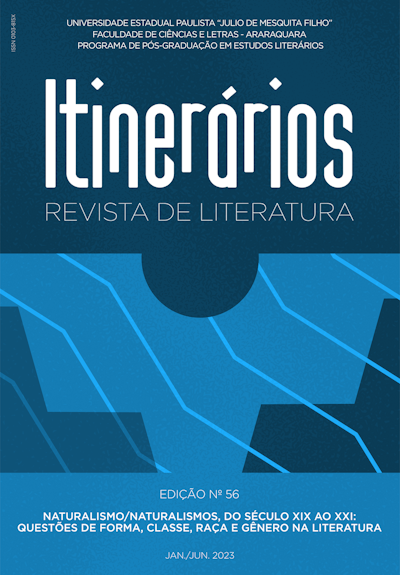Naturalism as pornography and the libertine heritage in A carne, O homem and O aborto
DOI:
https://doi.org/10.58943/irl.v1i56.17753Keywords:
Naturalism, Hysteria, Pornography, Libertinism, Books for menAbstract
The comparison between A Carne [The flesh] (1888), by Júlio Ribeiro, and O Homem [The man] (1887), by Aluísio Azevedo, has been recurring since its release. In the twentieth century, Miguel Pereira, assimilating the discourse of nineteenth-century critics, such as Pujol and Veríssimo, schematized the influence of Aluísio’s novel on other novels, which was perpetrated by literary historiography. O aborto [The abortion] (1893) (by Figueiredo Pimentel), which mentions A carne and O homem as pornographic books, would be accused of copying the former. Clearly, these approximations between the novels are intended to disparage them. The three of them were reproached for the falsification of characters and even of Naturalism, but, chiefly, for having exaggerated sexual representations, being branded as pornography. Indeed, all of them were read and sold as “books for men” in the nineteenth century. However, this does not disqualify them. By showing several points of contact with each other (not just textual ones) and a link with eighteenth-century libertinism, these books point to the functioning of Naturalism as one of the manifestations of pornography in Brazil and to its libertarian potential. After all, the main cause of detractors’ discomfort was the sexual freedom of the protagonists, Magdá, Lenita and Maricota. These women, more than hysterics, go back to the figure of the libertine, typically pornographic, having been compared with prostitutes. By re-dimensioning these “scientific novels” as popular and pornographic literature – taking exactly what was considered failure or excess –, their innovative character is revealed.
Downloads
Published
Issue
Section
License
Os manuscritos aceitos e publicados são de propriedade da revista Itinerários. É vedada a submissão integral ou parcial do manuscrito a qualquer outro periódico. A responsabilidade do conteúdo dos artigos é exclusiva dos autores. É vedada a tradução para outro idioma sem a autorização escrita do Editor ouvida a Comissão Editorial.

